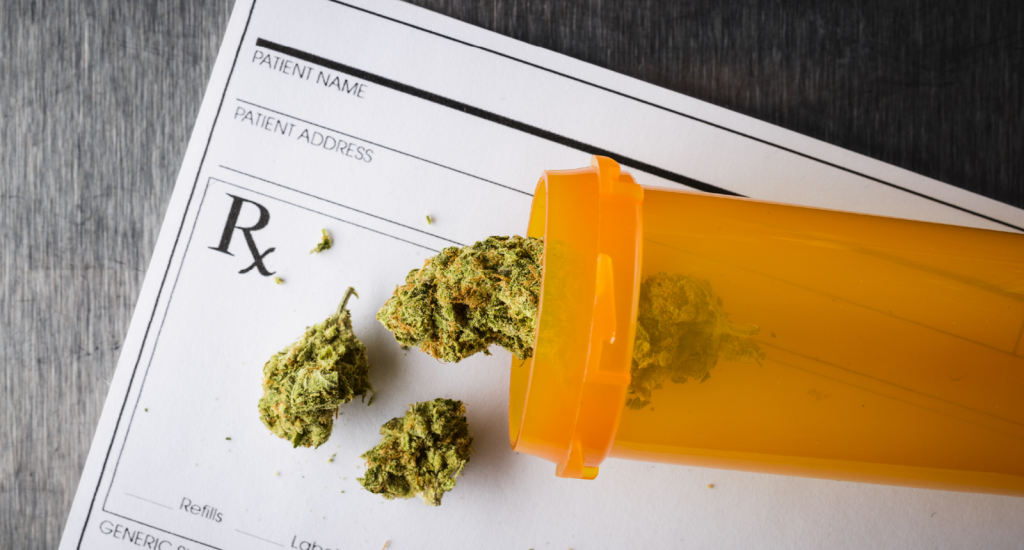What Happens If You Use Your Medical Marijuana Card to Sell Marijuana to Others?
While many have found Florida’s legalization of medical marijuana to be a relief from long-term debilitating medical conditions, some individuals may see an opportunity to capitalize on the ability to obtain marijuana legally. In fact, the illegal sale of marijuana in Florida and corresponding arrests have continued to increase since the drug’s official legalization in 2016. However, using your prescribed medical marijuana card to sell to others has different consequences than if you were to be caught dealing without one.
Florida Marijuana Laws on Sales by Medical Marijuana License Holders
Simply put, it is illegal to sell or give cannabis to anyone even if you have a Florida medical marijuana card. This is regardless of whether or not the other individual also has a medical marijuana card. According to Florida marijuana laws, properly managed medical marijuana must remain in the package that it was purchased in. If someone else is found in possession of your prescription marijuana it could result in criminal charges for both parties.
Who Can Officially Sell Medical Marijuana in Florida?
Throughout the country, states that have legalized the use of medical marijuana are still navigating the minute details of their marijuana laws. Contradictory or obtuse phrasing within some of these laws give way to a multitude of interpretations by lawmakers, law enforcement officers and those who are directly affected, citizens.
A prime example is the 2014 case State of Arizona vs. Jeremy Allen Matlock in which Matlock and his criminal defense attorney argued that the marijuana law in that state was so vague that patients could not be prosecuted for the sale of marijuana to other patients. Originally decided in Matlock’s favor, the case was subsequently appealed by the state and overturned by the Arizona Court of Appeals.
Florida marijuana laws cover not only the restrictions on obtaining a license for medical marijuana in Florida, but the cultivation, distribution and sale of cannabis. Aside from select dispensing organizations that must apply to become Medical Marijuana Treatment Centers (MMTCs), the growth of cannabis is illegal for any purpose, medical or otherwise. Florida marijuana laws “require an MMTC to perform all functions of cultivating, processing, transporting, and dispensing marijuana for medical use”. These laws also require laboratory testing of the MMTCs products and “background screening of MMTC owners, officers, board members, managers, and employees, and of medical marijuana testing laboratory owners and managers.” MMTCs must also hold processing facilities that will pass the FDA’s Current Good Manufacturing Practice (CGMP) inspection.
What Consequences Await a Licensed Medical Marijuana Patient for Supplying Cannabis?
Sale or delivery of most controlled substances is a felony in Florida. Lesser charges apply only to the delivery of less than 20 grams of marijuana, granted it is without consideration, or without the exchange of money or anything of value. Delivery alone, of less than 20 grams of marijuana is not a felony according to Florida marijuana laws, but rather a first-degree misdemeanor, which is still punishable by up to one year in county jail and a $1,000 fine. It can also result in a one-year suspension of your driver’s license, even though the infraction may have had nothing to do with your car or your driving. The one-year license suspension is mandatory for any drug-related conviction including possession, sale and/or delivery. This exception, or lesser charge, for delivery of less than 20 grams only applies to plant material and does not lend itself to any other products that may contain marijuana, such as edibles, oils, waxes, resin and hashish. Delivery of anything other than plant material is a felony, regardless of a medical marijuana ID card.
Based on where the delivery or sale takes place, there are additional penalties that can raise the level of the misdemeanor to a second-, and in some cases, a first-degree felony, punishable by up to 15 or 30 years in prison, respectively. The most common penalties in these cases involve the delivery or sale within 1,000 feet of a school, church, daycare, park or public housing.
Notable Aspects of Florida Marijuana Laws
Florida’s medical marijuana program limits the amount of marijuana you can possess as a licensed patient to a total of 4 ounces at any time. You can only purchase a maximum of 2.5 ounces every 35 days. There are additional restrictions on how many times you can purchase smokable marijuana before you have to be re-certified by your doctor or dispensary.
There is not a considerable difference in the price someone pays for illegal marijuana from the illicit market, versus the price at a legal medical marijuana dispensary. Therefore, there is not an opportunity for a significant markup or profit by illegally selling prescription marijuana. Low profitability is also coupled with the very serious and real criminal consequences of selling medical marijuana outside of MMTCs.
Involving a Criminal Defense Attorney
If you have a Florida medical marijuana card and are prescribed marijuana to manage one of the qualified illnesses, but utilize those means to sell or deliver marijuana to others and are caught, you will need to consult a criminal defense attorney who can help navigate vague or complex drug possession and trafficking laws and any potential consequences that may arise in your case.
Avera & Smith has the expertise to answer any questions regarding Florida marijuana laws and to provide legal representation in the face of criminal charges. Contact us today for a free consultation.
